Dmytro Kuleba, Minister for Foreign Affairs: There won’t be such a moment in history when the Crimea issue will be back-shelved:
The head of Ukrainian diplomacy, Dmytro Kuleba, considers long war fatigue inevitable, while remaining positive that both Ukrainians and their partners are capable of overcoming it. In an interview with Ukrinform, he also provided, in our opinion, massively convincing proof of his belief in Ukraine’s victory.
Also, the head of Ukrainian diplomacy spoke of why Ukraine has not yet severed relations with Belarus, whether there is a “Spartz factor” in Ukrainian-American relations, what obstacles will have to be tackled to create a Special Tribunal for probing Russian leadership, whether Hungary is the Kremlin’s “fifth column,” and whether the rumors are true that Iryna Venediktova could become Ukraine’s Ambassador of Switzerland.
TO FIGHT UKRAINE, PUTIN USES MISSILES, AND TO FIGHT EUROPE – GAS PRICES, INFLATION, AND PROPAGANDA
– Minister, let’s start with the heinous execution of Ukrainian prisoners of war by Russia in Olenivka. You called on the UN to visit the penal colony to establish all the facts related to this crime, and the International Committee of the Red Cross – to check on all Ukrainian prisoners of war that are being held there. We are aware of what the UN and the ICRC said in this regard. What’s next? Do these international organizations, which stood as guarantors of POWs’ lives, realize their indirect responsibility for their deaths and the safety of more than 2,000 Mariupol defenders who remain in captivity?
– Even if their sense of responsibility for these citizens of ours has somewhat dulled, the events in Olenivka have sharpened it. We helped them feel it as much as possible.
All the statements that Ukraine made on that tragic day were not about emotion – it was a call to international partners to perform their basic functions. We demand an independent inquiry into the barbaric execution of our prisoners of war, and we will punish every scoundrel involved in this heinous crime.
Everyone should work and do whatever depends on them. According to my information, both organizations “woke up” and began to take certain measures. But the truth is that, without Russia’s permission, it will be extremely difficult for them to fulfill their mandate – they can’t just get to the site of the Olenivka execution by force.
Therefore, we are currently monitoring the developments and continue to proactively push the situation in the right direction.
– In August, our Western partners go on a traditional summer break. But our war rages on. Does Ukraine have a certain diplomatic and military “reserve” for this period? Perhaps you gave our diplomats some “summer homework” to do?
– Ukrainian diplomats, no matter where they work, never go on August vacation. The task set before ambassadors and other diplomats is very clear – relatively speaking, even while on the beach, European diplomats and officials, including those of the European Commission, must deal with countering Russian aggression in Europe. After all, this is a war not only on us, it is also a war on Europe. It’s just that in Ukraine, Putin fights using his missiles, and in Europe – gas prices, inflation, and propaganda.
Therefore, all ambassadors should be aware of vacation destinations, and if necessary, call or reach out to partners even if their phone is turned off.
– For early this fall, Russia has scheduled “referendums” in the temporarily occupied territories. The U.S. said it was preparing along with its partners a swift and resolute response in the event of new annexation attempts. What would you like this response to be like?
– In the fall of last year, when they first started talking about the possibility of a new wave of Russian aggression, our partners – not only the USA, but the Europeans, too – also took the position that “if you, Russians, just dare do it, you will face severe irreparable consequences.” . This logic, in principle, led to Russia deciding that all these warnings shouldn’t be taken seriously. This was one of the factors, although not the only one, which contributed to Russia daring to invade Ukraine.
Therefore, we are now also communicating to our partners that there is no need to prepare for Russia to do something before we respond. It is necessary to work every day to prevent Russia from doing anything – be it holding a referendum, running an offensive, or whatever. We need to change the logic.
We are grateful that the United States was the first nation after Ukraine to speak very loudly in the world arena about the problem of these “referendums” and their preparation as such. But it is necessary to refocus the optics – not to threaten consequences but to focus on deterrence.
Just before the interview (recorded on August 1. – author) we had a long phone call in the following format: Andriy Yermak, myself, and Valeriy Zaluzhnyi from the Ukrainian side, and Jake Sullivan, Antony Blinken, and General Milley from the U.S. side. Among other things, we talked about Russia’s intentions to de facto annex newly occupied territories, and how we can prevent such a scenario from being implemented.
– After the latest missile attack on Ukraine, launched from the territory of Belarus on the Day of Ukrainian Statehood, the question arose again in our society, whether it is time to break diplomatic ties with this country. What is the position of the Ministry of Foreign Affairs on this matter in the wake of such demonstrative actions?
– I remember very well how on the night of February 24, the invasion of Ukraine began from the territory of Belarus. Before that, the Belarusians swore that their country posed no threat to us.
We harbor no illusions about Belarus, but there is a sober analysis of what’s happening, and how not to give (Alexander – ed.) Lukashenko additional reasons to make certain decisions.
I’ve already said this publicly: my position hasn’t changed. If the Belarusian armed forces move into Ukraine, I will immediately file a motion to sever diplomatic relations with them.
And regarding the fact that we are being shelled from the territory of Belarus, it seems to me that it makes no sense to time something like with any holiday dates. As for the fact that Russian bombers fly in the Belarusian airspace, sometimes they just training and sometimes firing, this is our daily reality.
I’d like to emphasize once again that Belarus is an accomplice in the crime of aggression against Ukraine, there is no doubt about that. Therefore, there are no excuses for them and there will be none.
IN FACT, THE “SPARTZ FACTOR” IN UKRAINIAN-AMERICAN RELATIONS IS NOT EVEN WORTH A QUESTION
– Congresswoman Victoria Spartz keeps penning letters to U.S. President Joe Biden regarding Ukraine. Also, she recently appealed to the UN to suspend the “grain deal.” In your opinion, could these appeals shake the bipartisan support for our country in U.S. Congress? Should the Ministry of Foreign Affairs do something to prevent this from happening?
– Ms. Spartz’s actions and steps resonate in Ukraine incomparably more than they do in the United States. Actually, that’s why she constantly creates new media drives, trying to spin this flywheel.
We reacted to her first public step in this regard because her accusations were categorically untrue. Today’s talks with the American partners, which I spoke of, are in my opinion, the best answer to Ms. Spartz’s accusations of lack of trust. We all communicate and we trust each other. The level of trust that President Zelensky and his team have with the Biden administration is extremely high. We discuss things so “intimate” in professional terms that it already looks like communication between relatives, not partners.
I’m grateful to the United States for its strong bipartisan support for Ukraine, and I’m convinced that nothing can break it. We are becoming really close, special allies, and this process has been going on for a decade already.
Ms. Spartz is a career politician. If she comes up with something completely blatant, which categorically contradicts the truth and harms our interests, we will respond. For example, she spoke about the grain deal, and we responded. But we will not respond to any other passing statements. Although, I believe, they will periodically emerge on some topics, where, from the point of view of her advisers, there could be some hype.
So, once again, Ms. Spartz as a politician has the right to do this, but we also have the right to our position and an explanation why her words do not correspond to reality. We do not accuse her of anything, but we will clearly expose where she distorts reality.
– Perhaps we should try to come to an understanding with Ms. Spartz in order to prevent potential harm to Ukraine?
– When someone wants to get along, they don’t write open letters with such accusations. We never fought with her. You and I have already been talking about it for five minutes, but trust me, in reality, the “Spartz factor” in Ukrainian-American relations is not even worth a question, let alone a discussion.
RUSSIA ATTACKED EUROPE LONG BEFORE ITS TROOPS MOVED INTO UKRAINE
– A few months ago, you called on the West to accept the idea that the war must end in Ukraine’s victory. Do you notice any evolution in this regard? Why, in your opinion, is it difficult for the West to believe we will win?
– Indeed, I see evolution in the right direction. But it is difficult for them to evolve for two reasons: firstly, because the entire European political philosophy is built on the win-win idea, where both sides have something to gain. Then the agreement, based on these mutual gains, becomes more stable and long-term.
Secondly, even for those who are good to Ukraine, the thought of Russia’s defeat simply did not come to their minds: it is so huge, so powerful, it’s a permanent member of the UN Security Council, with a nuclear button, Dostoevsky, ballet – how can this be possible at all?
Imagine that you were brought up by a certain political school and built politics on a win-win basis all your life, you formed a certain image of Russia, and you lived with it, made a career on it. And then Ukraine comes up and says: “There will be no win-win, there will be win-lose – that’s the first thing. And, secondly, all these writers and ballet are useless here because we are dealing with an absolutely barbaric state on the border of Europe, which is trying to destroy us all.”
Indeed, if you were in the place of most European politicians, you would not believe me the first time you heard this, but you would start to reflect, right? And in communications, the most difficult task is to shift deeply entrenched beliefs.
Therefore, the West needs some time for evolution in their views. Unfortunately, they evolve most rapidly once yet another Russian crime committed in Ukraine is exposed.
– What advantages of Ukraine’s win and Russia’s defeat can we name in our communications with the West?
– If we are talking Europe, the level of sympathy for Ukraine is very high there. At the same time, even those who treat us well have a picture in their heads that Russia attacked Ukraine exclusively. We are trying to explain to them and everyone else that Russia attacked Europe long before its armed forces moved into Ukraine along the entire front line on February 24.
The gas crisis in Europe unfolded late last year. Gas prices climbed long before the first Russian missiles hit Kyiv. What is the reason behind the current energy crisis and inflation in Europe? It’s Russia’s actions.
Therefore, this is a complex attack, and they should understand that helping Ukraine is not about charity, but an investment in own future and own security. But before February 24, the Europeans had been trying to solve this problem by constantly flirting with Putin – they would dwell into all these endless conversations: “Let’s do it this way or that way…” He lied to all of them and spat in their faces. On February 24, it became apparent, and it was an epiphany. But now comes the next phase: accepting the fact that the only way to protect our security and prosperity is to make Russia different. And the way to this other Russia lies exclusively through its defeat on the battlefield in Ukraine.
Therefore, the advantage for everyone is very simple – we will win and restore our territorial integrity, while Europe will get rid of the source of the nightmare looming over the continent.
– With the current attitudes of our partners in Europe, is it realistic to implement the idea of a Special Tribunal for the Russian leadership to be tried for war crimes in Ukraine?
– The topic of the Tribunal is a bare nerve. Any position, in principle, can be somehow camouflaged or blurred. But regardless of whether you support the Tribunal or not, you understand that this is about a legal decision that will establish that Vladimir Putin is a criminal, responsible for giving orders that have killed tens of thousands of people.
I won’t hide it, it’s a bit scary for them for various reasons, including political ones, because since 1945, there have been only two such trials – Nuremberg and the trial of Milosevic, where a European leader was tried for war crimes. And the practice of trying another country’s leader is very unstable, let’s put it this way.
Second, there is the International Criminal Court fan club (to which we also belong). Its charter states that one of the crimes for which it can try someone is aggression. But in practice, purely for legal reasons, they cannot apply this article specifically to the Ukraine-Russia case.
Our partners say: “There is no need to set up a Tribunal because we have the ICC, so we cannot create an alternative.” And we say: “Wait, what is more important – the interests of the ICC, which does not want any temporary alternatives for itself, or justice, for the sake of which the ICC exists?” Here they are in a stupor because they stand for both justice and the ICC.
In short, there is a problem of institutional selfishness both in the matter of the International Criminal Court and in the matter of creating the Special Tribunal. But we are working on it, and I think the result will come. We call on all states and organizations to support the establishment of the Special Tribunal for the Crime of Aggression against Ukraine. This crime has taken place, which means that there must be a punishment for it.
– What should be the next step to this end?
– In order to do this, it is necessary to overcome the obstacles that I mentioned. Currently, both obstacles remain relevant.
AS LONG AS HUNGARY’S STATEMENTS DON’T COINCIDE WITH ITS DECISIONS REGARDING UKRAINE, WE CAN LIVE AND WORK
– Let’s talk about Hungary… Our relations weren’t easy even before. So what will they be like following the latest statements of Prime Minister Viktor Orban regarding Russia’s war against Ukraine? Can Hungary now be considered the Kremlin’s “fifth column” in the EU and NATO?
– I think that Hungary is its own “fifth column.” This is their internal policy, so the Hungarian people will have to find out, to what extent it goes in line with their interests.
I always say very clearly that any statement, no matter how unpleasant and emotional, is one thing, while a decision is another thing. Hungary does join sanction efforts – we see that within the EU debate, Hungary is “watering down” some potential new sanctions, but the situation hasn’t yet reached a critical level where we could claim that some significant step has not taken place because of Hungary. They also supported granting Ukraine the status of a candidate for EU membership.
That is, as long as Hungary’s statements do not coincide with its decisions regarding Ukraine, we can live and work. If what they say starts to match what they do, then there will be a problem.
– Another ambiguous partner of ours is Turkey. Recently, President Erdoğan intensified contacts with Russian President Putin – the two met in Tehran on July 19, and bilateral negotiations are scheduled for August 5 in Sochi, where, according to the Russian side, military-technical cooperation will be discussed. Against this background, can we bet on Turkey as a reliable partner and impartial mediator in matters of both peace and grain export?
– If it’s specifically about the Bayraktar drones, for a number of reasons it is difficult for me to imagine that Turkey will supply these systems to Russia.
As for the general mediation role, Turkey and the United Nations’ mediation has largely worked despite certain issues. Let’s hope it continues to work this way.
Regarding the more encouraging signals that Turkey is now sending that the grain agreement is a prerequisite for a broader deal to be struck between Ukraine and Russia, we don’t share this kind of optimism.
– Are you more optimistic about compliance with the grain deal?
– Now, once the agreement is already in place, it will be very difficult for Russia to fire off inconspicuously because it will be obvious that it bears full responsibility. In recent months, Russia has invested too much in a myth that it is saving the world from the food crisis to simply hit it with its own missiles.
But, to be honest, they are so messed up that I wouldn’t go all-in to bet they think exclusively on the rational terms in this regard.
Ukrainian food exports save the world from hunger and price hikes. Ukraine has always been a reliable partner, and we are making every effort to maintain this status despite the Russian war and blockade. The first ship carrying Ukrainian food exports is a signal to all our friends in the Middle East, Africa, and Asia: we will not let you down, we will protect your families from the famine that Russia is trying to provoke.
THE SECOND SUMMIT OF THE CRIMEA PLATFORM WILL DISCUSS EVERYTHING THAT CONTRIBUTES TO THE DEOCUPATION OF THE PENINSULA
– Putin recently approved the new Maritime Doctrine, where, among other things, he called the waters of the Black Sea a “zone of national interests” and announced plans to comprehensively strengthen Russia’s geopolitical positions in the region. Is this loud rhetoric or a threat not only to Ukraine, but also to other countries of the Black Sea region?
– If I’m not mistaken, they used to say that their national interests are everywhere where the Russian language is spoken. Obviously, in their view of the world, the fish in the Black Sea also speak Russian, so they must be protected (smiles).
This is a Russian game of verbal muscle-flexing. It’s clear that this is a zone of their national interests. We sank their cruiser in this zone, and neither the absence nor the presence of this doctrine prevented us from doing so.
– Will the situation in the Black Sea be among the topics of the Second Summit of the Crimea Platform?
– At the Crimea Platform Summit, which on August 23 will be held online for objective reasons, we will discuss everything that contributes to the de-occupation of the peninsula in terms of diplomatic efforts. We invite all Crimea Platform participants who attended the inaugural summit last year, as well as new partners, to join us online on August 23. This is a matter of protecting international law and maintaining global peace and security.
It is important to not interrupt the dynamics of the Crimea Platform’s development and to hold the summit for two reasons.
It might seem that there is a war going on, and it could be postponed. But we want to send a very clear signal: even theoretically, this won’t happen, but if, again, theoretically, the enemy approaches Kyiv, we will still plan to deoccupy Crimea.
It is very important to understand: no matter what happens and no matter how difficult things go, we must always think strategically – the moment will come when we deoccupy our territories. And the summit of the Crimea Platform sends precisely such a signal. There will not be such a moment in history when the Crimea issue, or the Lysychansk issue, or the issue of any other city that is currently temporarily occupied, will be back-shelved. Yes, it’s about diplomacy, but that’s what we’re talking about.
And the second reason why the summit is important right now is because in some capitals, there is still an informal narrative prevailing that “Crimea is, of course, Ukraine, but you should be specifically careful with Crimea because it is an exposed nerve for Russia.” Therefore, we’d like to reiterate that Crimea is Ukraine, and we will say what we want and do what we want about it. This is a fundamental point.
– To what extent are partners ready to support this discourse and our goals?
– The Crimea Platform Summit will show.
– The war somewhat overshadowed the tragedy with the downing of the Ukrainian plane near Tehran. In early January, Iran responded by rejecting the offer of the International Coordination and Assistance Group for the victims of Ukraine International Airlines Flight 752 to join the compensation negotiations. Has the Ministry of Foreign Affairs since then been in contact with the Iranian side regarding the plane crash or has this issue been postponed until the end of the war?
– We have not postponed anything, but I can’t say that there is currently any active negotiation process underway between this International Group and Iran. The war messed everything up and changed priorities, but we did not abandon the issue and never did we put it on hold. It, of course, will also be addressed.
– It is unfortunate, but the war in Ukraine is gradually disappearing from the international headlines. What are the possible changes in communication with Western audiences in order to keep Ukraine in their focus?
– These are the laws of psychology – people get used to anything, so what was first seen as a shocker, say, the first 24 hours into the invasion, has already become usual. You and I are also used to living in conditions of war. And Western societies have also grown used to living with the fact that there is an ongoing war.
There are only two ways to get back on the front pages – either a big win or a major defeat. Everything that will be between these poles, figuratively speaking, will be reported on the second or third page.
We are working toward a great victory, and the Russians are working toward our great defeat. But, I think that the front page will be ours.
NOW UKRAINE IS ENTERING THE GAME ON THE AFRICAN CONTINENT
– You announced visits to a number of African countries as part of intensifying Ukraine’s relations with the continent. But you will be going there after (Russian Foreign Minister Sergei – ed.) Lavrov toured Africa promoting the Russian agenda. What are your expectations of these visits? What would you see as a successful outcome?
– If advancing narratives depended on a single visit, trust me, Ukraine would have defeated everyone long ago with such spot visits, powerful as HIMARS strikes. Narratives are something you work with for a very long time.
Lavrov went to the African countries where he feels comfortable in terms of how he is received. There’s no reason to say it was a successful visit, so I don’t think he’s very happy about it. But the fact that they reflect on us this way – Mr. Lavrov hopping on a plane and going on tour as soon as we start talking about Africa – means that they are in good shape, well done, let them continue responding in the same spirit, chasing us and trying to outplay our narrative.
And secondly, Russia has been introducing certain narratives there since Soviet times. Therefore, just as my visit won’t beat all Russian narratives with a single snap of fingers, Lavrov won’t be able to beat ours either. It is a long game, but it must be played. And, actually, now, in this tragic year of 2022, Ukraine is entering the game on the African continent.
Late last year, we approved the Africa strategy, now the president is reaching out to his African counterparts, I am in contact, too, and a tour is being prepared. We will also launch parliamentary diplomacy in the African direction. That is, we go everywhere to promote and protect Ukraine’s national interests.
MFA IS NOT A TIN CAN WHERE WE ARE SEALED UP AND SHAKEN FROM TIME TO TIME
– We can’t help but ask about the cadres… Early July, the president dismissed Ukraine’s ambassadors to Germany, Hungary, Norway, the Czech Republic, and India, and late June – to Iran, Georgia, Slovakia, Portugal, and Lebanon. Could you, please, comment on the reasons behind these layoffs – was it rotation or inefficiency?
– It was purely rotation. I told all my colleagues frankly and directly: I have no other approach to dismissing ambassadors, except to have them go on rotation, based on the term served abroad.
Look at all the dismissed ambassadors – not one of them worked in their country for less than the four years allotted by law for working abroad, while some served for seven and a half years. I also grew up in this system and, with all my respect for them, I’m very well aware that it is impossible to work for seven years abroad and not break away from own homeland, from this sense of your own country. This is why rotation was invented.
I understand that it is difficult for some of the ambassadors to return home, some seek to tell everyone that they are heroes, without whom the relations with some X-country would collapse. This proves only one thing – that this person should have returned, say, two years ago.
The second reason I can file an ambassador for dismissal is their massively poor performance. But these are rare cases because, in principle, our ambassadors work effectively, and the last five months have shown that ambassadors perform multiple tasks efficiently.
– How many vacancies are currently available for top embassy spots?
– A lot, about two dozen of them.
– There were unofficial reports that after dismissal from the Prosecutor General’s post, Iryna Venediktova may become Ukraine’s Ambassador to Switzerland. Can you confirm this?
– Yes, I signed the application for Ms. Venediktova’s appointment as our Ambassador to Switzerland.
– How do you generally feel about the practice of political appointments to diplomatic posts?
– It has always been, is, and will be the case in all countries, not only in Ukraine. An ambassador must bear certain qualities. Sometimes people come to the system “from the street” and say: “I want to be an ambassador.” I say, “Okay, but here’s why I don’t think this job is exactly for you.” And sometimes I see that the “person from the street” can really be an ambassador, so why not take them in?
The Ministry of Foreign Affairs is not a tin can, where we are all sealed up and shaken from time to time to have us switch positions inside of it. We need an influx of fresh blood, fresh thoughts and views.
The president is constantly looking at candidates for countries that are a priority for him. All of us – Andriy Yermak, myself, Andrii Sybiha – are constantly looking for new people. Another thing is that out of dozen of candidates, only one will pass because the selection process is very elaborate. But it is absolutely normal when we introduce into the system some people from the outside, but they must have competencies that will allow them to effectively perform the ambassador’s functions.
I believe that Venediktova does have these competencies. Her work with international partners in recent months showed that she can prove herself on the international track.
– Did she come to you “from the street”? Was it her idea to become an ambassador or did you offer her the post?
– This idea was born in a circle of several people – they sat down, had a discussion, and such an option arose.
As far as I know, after she was dismissed from the position of Prosecutor General, she left Kyiv for Kharkiv, so we will see her this Thursday.
– You said earlier that in the conditions of war, the methods of classical diplomacy are not always effective. Did the methods of “offensive” diplomacy, embodied by the former ambassador of Ukraine to Germany, Andrij Melnyk, justify themselves?
– Let’s not single out individual ambassadors. As a minister, I value each ambassador who brings results to the country by both classical and any other methods. To me, every ambassador who brought weapons here, secured sanctions, and fulfilled a number of other principled tasks, is a star.
– On the eve of the war and after it started, you wrap up almost all your briefings with the call: “Believe in Ukraine.” What gives you reasons to believe in Ukraine and remain optimistic?
– After February 24, at a certain stage, I had to make the most difficult decision for me – should I get my children back to Ukraine or not. So I got back my kids, who wanted to return – not just to Ukraine, but to Kyiv. Therefore, I’m interested in the victory of Ukraine like no one else – not just as a citizen of this country, but also because my children are here, and I want them to be safe and sound.
Wanting my children to be here with me and to see them happy is precisely what motivates me to move forward and believe in our victory.
Nadiia Yurchenko, Oleksandr Kharchenko, Unkrainform.


 Azercell cancels mobile communication debt of military officers martyred or wounded in Patriotic War
Azercell cancels mobile communication debt of military officers martyred or wounded in Patriotic War
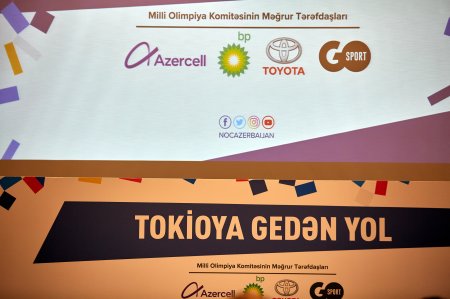 Azercell is a proud partner of the National Olympic Committee and the National Olympic Team
Azercell is a proud partner of the National Olympic Committee and the National Olympic Team
 Azərbaycanda “Chevrolet” və ISUZU-nun istehsalına başlanıldı - QİYMƏTLƏR
Azərbaycanda “Chevrolet” və ISUZU-nun istehsalına başlanıldı - QİYMƏTLƏR
 Top up your balance and get double cashback to “Umico” from Azercell
Top up your balance and get double cashback to “Umico” from Azercell
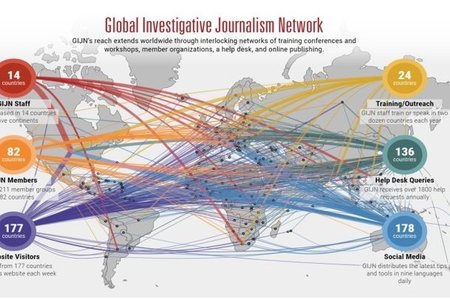 Qlobal araşdırmaçı jurnalist şəbəkəsi- Yaradılmasının məqsədləri
Qlobal araşdırmaçı jurnalist şəbəkəsi- Yaradılmasının məqsədləri
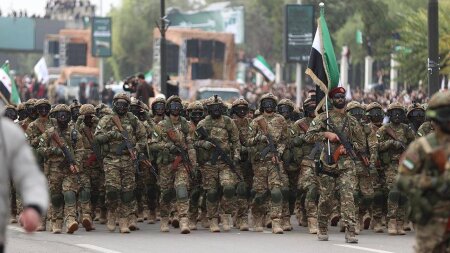 Suriya ordusu Hələbdə hərbi əməliyyata başlayacaq
Suriya ordusu Hələbdə hərbi əməliyyata başlayacaq
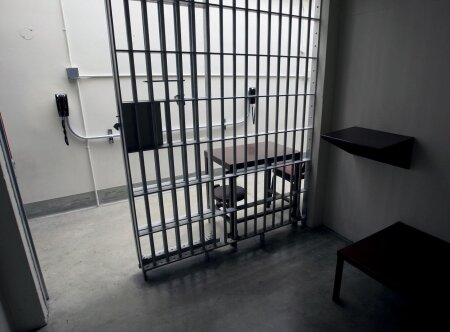 "Avro Qrand" MMC-nin rəhbəri, tanınmış iş adamı Xanlar Cəfərov həbsdə vəfat edib
"Avro Qrand" MMC-nin rəhbəri, tanınmış iş adamı Xanlar Cəfərov həbsdə vəfat edib
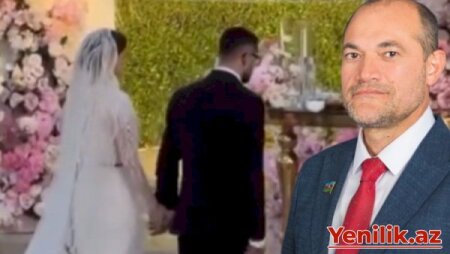 Dubayda dəbdəbəli toyu olan deputat qohumu BU VƏZİFƏNİ TUTUR
Dubayda dəbdəbəli toyu olan deputat qohumu BU VƏZİFƏNİ TUTUR
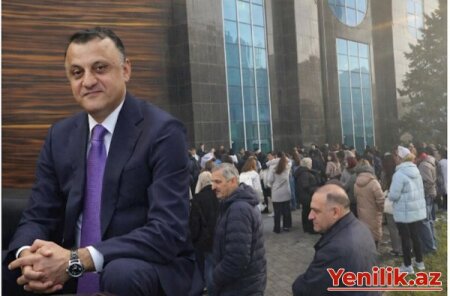 Həkimlər TƏBİB-in qarşısında aksiya keçirdi — Vüqar Qurbanova etiraz edirlər (VİDEO)
Həkimlər TƏBİB-in qarşısında aksiya keçirdi — Vüqar Qurbanova etiraz edirlər (VİDEO)
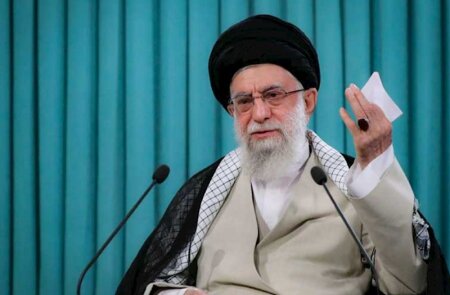 Rusiya təyyarələri Xameneinin qızıllarını Moskvaya daşıyır — Sonuncu reysdə özünü aparacaq?
Rusiya təyyarələri Xameneinin qızıllarını Moskvaya daşıyır — Sonuncu reysdə özünü aparacaq?
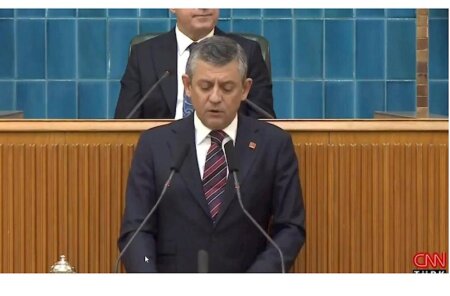 Özgür Özel Türkiyə Böyük Millət Məclisinin iclasında PREZİDENTİ BELƏ MÜDAFİƏ ETDİ— VİDEO
Özgür Özel Türkiyə Böyük Millət Məclisinin iclasında PREZİDENTİ BELƏ MÜDAFİƏ ETDİ— VİDEO
 Ərdoğan MADURO İDDİASINA CAVAB VERDİ
Ərdoğan MADURO İDDİASINA CAVAB VERDİ
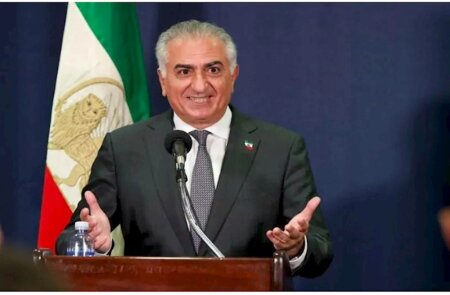 Rza Pəhləvi özünü inqilabın lideri adlandırdı — "Saat 20:00-da hamı küçələrə çıxsın"
Rza Pəhləvi özünü inqilabın lideri adlandırdı — "Saat 20:00-da hamı küçələrə çıxsın"
 Dini qurumlara maliyyə yardımı ayrıldı - SƏRƏNCAM
Dini qurumlara maliyyə yardımı ayrıldı - SƏRƏNCAM
 “Qarabağ” yeni transferini ÇL-də oynada bilər? - CAVAB BURADA!
“Qarabağ” yeni transferini ÇL-də oynada bilər? - CAVAB BURADA!
 MOSSAD İlham Əliyevin bəyanatını yaydı – FOTO
MOSSAD İlham Əliyevin bəyanatını yaydı – FOTO
 Yumurta satışına limit qoyuldu - VİDEO
Yumurta satışına limit qoyuldu - VİDEO
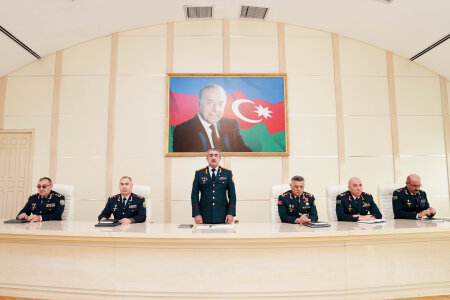 2025-ci ilin xidməti-döyüş fəaliyyətinin yekunlarına dair hesabat müşavirəsi keçirilmişdir
2025-ci ilin xidməti-döyüş fəaliyyətinin yekunlarına dair hesabat müşavirəsi keçirilmişdir
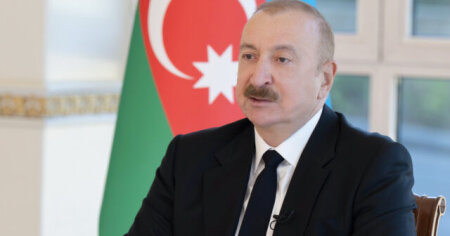 Prezidentin müsahibəsi Azərbaycanın geopolitik gücünün mesajı oldu
Prezidentin müsahibəsi Azərbaycanın geopolitik gücünün mesajı oldu
 Bu şəxslər yüksək məbləğlə daha tez pensiyaya çıxa biləcəklər-DİQQƏT
Bu şəxslər yüksək məbləğlə daha tez pensiyaya çıxa biləcəklər-DİQQƏT
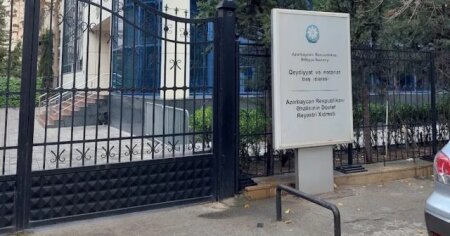 Notariuslardan QANUNSUZ TƏLƏB: Vətəndaşı SÜRÜNDÜRƏNLƏR kim(lər)dir?
Notariuslardan QANUNSUZ TƏLƏB: Vətəndaşı SÜRÜNDÜRƏNLƏR kim(lər)dir?
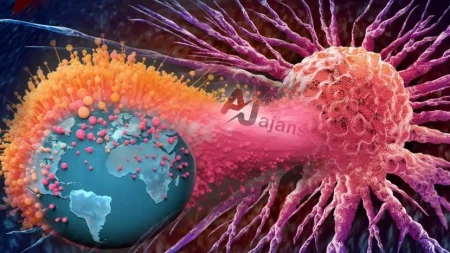 Xərçəngə yoluxma hallarında KƏSKİN ARTIM: Qarşısı alınmazsa 30 MİLYONU KEÇƏ BİLƏR?
Xərçəngə yoluxma hallarında KƏSKİN ARTIM: Qarşısı alınmazsa 30 MİLYONU KEÇƏ BİLƏR?
 SOCAR-ın neft bazasında partlayış: İşçi həlak oldu – RƏSMİ
SOCAR-ın neft bazasında partlayış: İşçi həlak oldu – RƏSMİ
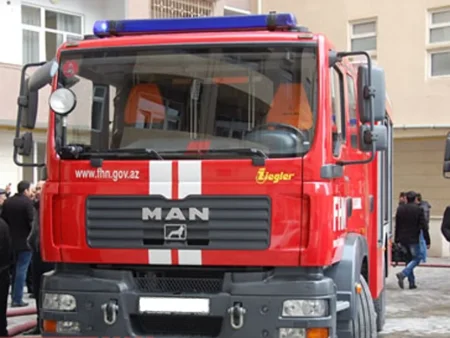 Şəkidə məktəb binasında yanğın olub.
Şəkidə məktəb binasında yanğın olub.
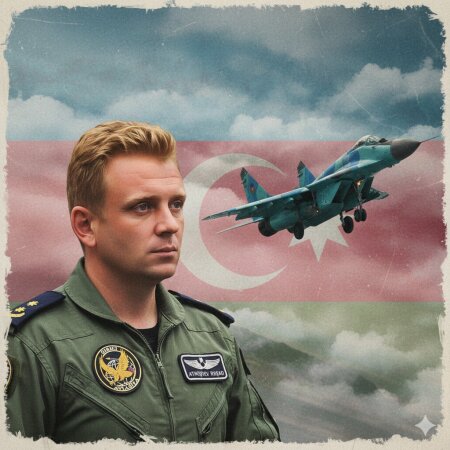 GÖYLƏRİN KEŞİKÇİSİ
GÖYLƏRİN KEŞİKÇİSİ

 Əzgilin faydalarıı görün nədir-DİQQƏT!
Əzgilin faydalarıı görün nədir-DİQQƏT!
 Bu şəxslər xurma yeməməlidir
Bu şəxslər xurma yeməməlidir
 20 santimetrlik… dil!-İNANILMAZ
20 santimetrlik… dil!-İNANILMAZ
 Pulqabınıza bunları qoymayın - Kasıblaya bilərsiniz
Pulqabınıza bunları qoymayın - Kasıblaya bilərsiniz
 Uzun ömür yaşamaq istəyirsinizsə, yatın...
Uzun ömür yaşamaq istəyirsinizsə, yatın...
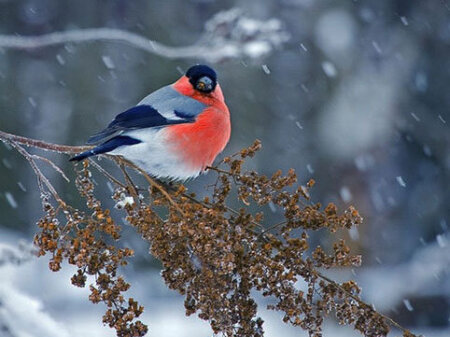 Böyük Çillə gecəsi niyə müqəddəs sayılır? Unudulan inanclar
Böyük Çillə gecəsi niyə müqəddəs sayılır? Unudulan inanclar